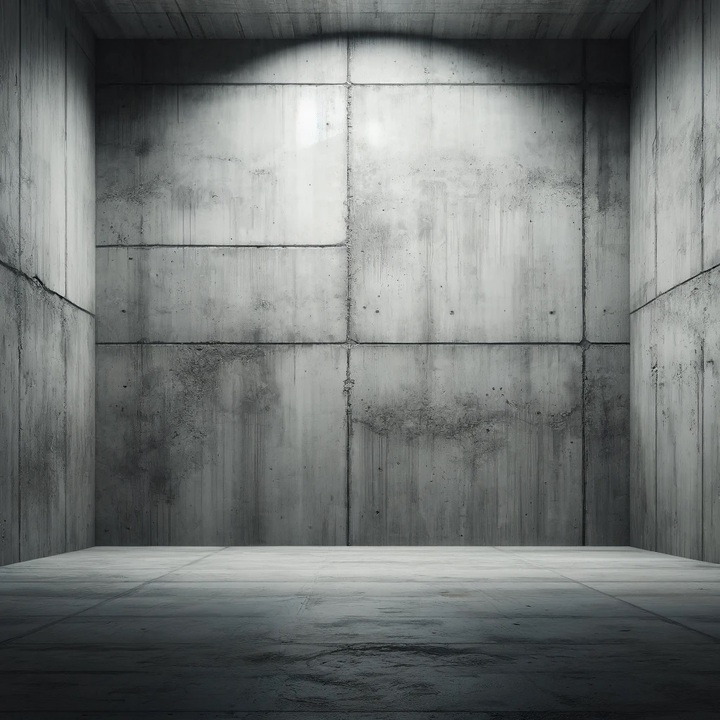
You might think you can skip this step, finish your basement, and everything will be just fine. But is that a risk you’re willing to take? As we explore the pros and cons, you’ll gain valuable insight that could save you from future headaches and unnecessary expenses.
Key Takeaways
- Skipping basement waterproofing increases the risks of mold, mildew, flooding, and structural deterioration over time.
- Waterproofing a basement not only protects against health hazards and respiratory issues but also enhances property value and energy efficiency.
- Real-life case studies emphasize the importance of basement waterproofing to avoid costly repairs, inconvenience, and damage to possessions.
- Decision-making factors such as climate, basement usage, budget considerations, and impact on resale value should be carefully weighed before deciding on basement waterproofing.
Understanding Basement Waterproofing
Before diving into the process of finishing a basement without waterproofing, you need to understand what basement waterproofing entails and why it’s often considered a crucial step in basement renovations. Essentially, basement waterproofing consists of techniques and materials used to prevent water from penetrating the basement of a house or building. It’s designed to direct water away from the basement to keep it dry and safe from damage.
So, why is it important? Well, basements are prone to moisture and water accumulation due to their location. Over time, this accumulation can lead to mold, mildew, and structural damage. When you waterproof your basement, you’re not just protecting your investment, but you’re also creating a healthier home environment.
Now, you might be thinking, ‘Can I skip this step?’ Short answer, yes, but there are risks involved. Without waterproofing, you run the risk of future water damage, which can lead to costly repairs. Therefore, it’s crucial to weigh the potential risks against the immediate savings before making a decision. Remember, a well-waterproofed basement is a solid foundation for a great living space.
Potential Risks of Skipping Waterproofing
Diving into the deep end, if you decide to skip the waterproofing stage, you’re inviting potential risks that can jeopardize the integrity of your basement and, in turn, your entire home. This could lead to significant issues down the line, costing you much more than the initial waterproofing would have.
Firstly, you’re opening the door to mold and mildew growth. These fungi thrive in damp environments and can cause serious health problems, particularly respiratory issues, for you and your family. They can also cause structural damage to your home, as they feed on organic materials like wood and drywall.
Secondly, without waterproofing, your basement could become susceptible to flooding. This can cause immediate damage to anything stored in the basement and long-term damage to the building’s foundation. Moreover, constant exposure to water can lead to the deterioration of your basement walls and floors over time.
Lastly, skipping waterproofing could negatively impact your home’s value. Prospective buyers are likely to be deterred by the potential for flooding and mold issues, reducing the price they’re willing to pay. So, while you might save money initially, you’re likely to lose out in the long run.
Benefits of a Waterproofed Basement
On the flip side, investing in basement waterproofing can reap tremendous benefits, enhancing your home’s value and safeguarding your health. It may seem like a substantial upfront cost, but you’ll find it’s an investment that pays off in a myriad of ways.
- Increased Property Value: Waterproofing your basement can significantly boost your home’s market value. Prospective home buyers are more likely to pay a premium for a home with a dry, usable basement.
- Health Protection: Waterproof basements prevent the growth of mold and mildew, which can cause serious health issues. You’re safeguarding your family’s health by eliminating these potential risks.
- Energy Efficiency: Believe it or not, a waterproof basement can reduce your energy costs. It helps keep your home’s temperature stable, reducing the need for excessive heating or cooling.
- Peace of Mind: Last but not least, you won’t have to worry about water damage following heavy rainfall. You’ll sleep easier knowing your basement, and the possessions stored there, are safe and dry.
Case Studies: Finished Basements Without Waterproofing
Let’s now explore some real-life examples of homeowners who finished their basements without waterproofing and the consequences they faced.
In one case, a family in Portland decided to convert their unused basement into a guest room. They installed insulation, drywall, and carpeting but skipped the waterproofing step. In the first winter, they faced a significant problem – moisture seeped through the walls and floors, leading to damp carpets and a musty smell. The family was forced to rip out the newly installed carpet, drywall, and insulation to address the issue, effectively doubling their initial renovation costs.
Another case involved a homeowner in New York who transformed his basement into a home theater. He didn’t waterproof the basement initially, assuming the existing drainage system was sufficient. It wasn’t. Following a heavy storm, his basement flooded, damaging expensive audio-visual equipment and causing mold growth that required professional remediation.
These instances highlight the importance of waterproofing before finishing a basement. Skipping this step can lead to costly repairs, potential health risks, and a lot of inconvenience. It’s clear that waterproofing isn’t a step you should overlook; it’s an investment in the longevity and usability of your finished basement.
Decision Making: Is Waterproofing Necessary?
When deciding whether or not to waterproof your basement, it’s crucial to weigh the potential risks and benefits carefully. This choice should never be made hastily, as it can significantly impact the longevity and usability of your basement.
To aid in your decision-making process, consider these four primary factors:
- Climate: If you live in an area with high rainfall or a high water table, waterproofing becomes more essential. The risk of water damage is far greater, making prevention a wise investment.
- Usage: Plan on using your basement as a living space? Then waterproofing is strongly recommended. It’ll help prevent moisture-related issues that can lead to a range of problems, from mold growth to structural damage.
- Budget: Waterproofing can be pricey, but weigh this against potential repair costs down the line. Sometimes, the initial investment can save you money in the long run.
- Resale Value: A waterproofed basement can add to your home’s resale value. It’s a feature that many prospective homebuyers look for.
Conclusion
Deciding to finish your basement without waterproofing is a risky move. Imagine, for instance, the Smiths who spent thousands on a basement remodel, only to face expensive water damage repairs months later.
While it may seem like a hefty upfront cost, waterproofing can save you from future headaches and costly repairs. So, consider the potential risks and benefits before making your choice.

Jeff’s passion for basement waterproofing can be traced back to his early days at Everdry Waterproofing. He spent significant time working in every department not only to learn and improve but to help those who worked with him advance both personally and professionally.
Jeff has worked in the Waterproofing industry for 35 years, gaining experience in marketing, sales, service, and installations. As a seasoned basement waterproofing professional, he is passionate about advancing his knowledge in waterproofing and developing his team. In addition to basement waterproofing, he is also a board member for a non profit that educates and protects consumers against unethical business practices. Outside of the office, Jeff enjoys travel, music, and time with his wife of 36 years and his two sons.
Curious about the brains behind the great content here? It’s me, Jeff Schleuning, with 35+ years of expertise in the basement waterproofing industry and a rich history of owning a Basement Waterproofing franchise in Michigan.
My journey has equipped my team and I with invaluable insights, enabling to craft content that resonates with the audience using industry-leading online tools. Incorporating tools like SEMRush, Google Keyword Planner, AI technologies like ChatGPT, Claude-2, Google Bard, and Grammarly, we ensure the content is not just engaging but also strategically aligned with market trends.







